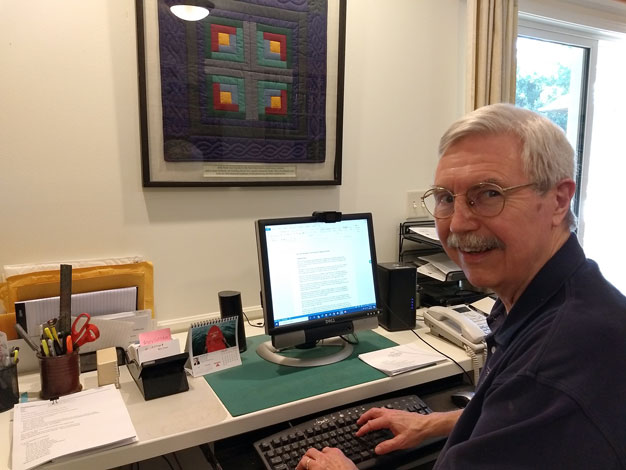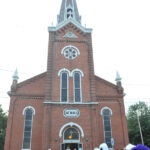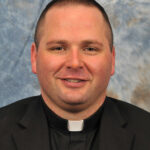
Tim Walch types his thoughts and experiences during the coronavirus pandemic for future generations to read.
By Tim Walch
That we’re living through unprecedented times is without dispute. Normally a people on the move, we’ve been stuck at home for the past few months. We wear masks and maintain social distance to protect ourselves from the ravages of a horribly infectious disease. And then we got hit by a derecho!
Historians and archivists have been addressing these experiences in unique ways. We’re not first responders, of course. We don’t provide aid like doctors, nurses and tree surgeons, but we do have an important responsibility. You might say that we are “past responders.”
I know this term seems glib, but I use it to make an important point. Living through unusual experiences calls out for documentation. We — all of us — need to record what has happened to us in recent weeks as well as during past decades. We need to capture our impressions of the changes in the ways we lived our lives in the past and how we are living our lives today.
What’s so important about making masks or helping your neighbor after a storm? You might dismiss these activities as trivial, but it’s important to remember that time has a way of increasing the value of ordinary events. Our reflections on life in the moment often provide unique insights for future generations.
Think long-term, both past and future. What if you had a memoir of your great-grandfather’s emigration from Europe to America? Imagine if you had a diary of your great-grandmother’s experiences as a teacher in a rural school? Documents like these are more precious than most other heirlooms that we pass on to our descendants.
So this is the time to start a diary or begin a memoir. If you balk at such a personal task, then focus on other members of your family. Too often we have promised ourselves that we would interview our parents or grandparents about their lives in this country. What better time to record their memories on audio or videotape?
Let me give you a couple of examples. My friend Ken Donnelly, a long-time member of St. Patrick Parish in Iowa City, has compiled a wonderful collection of memories and reflections about his father, Harold, and the tavern he ran for 40 years. The book is a delightful reflection on social life during the middle years of the last century. Ken donated a copy of the book to the State Historical Society.
A second, more topical example is a diary compiled by Father George McDaniel at the beginning of the COVID-19 pandemic. Father McDaniel was on a cruise ship when the pandemic put all the passengers under a quarantine. As a retired professor of history, Father McDaniel put his observational skills to good use and recorded the experience for posterity. After returning safe and sound to Davenport, he typed up his notes and donated the diary to the archives at St. Ambrose University in Davenport where he taught for decades.
So my advice to you is to sit down at the keyboard or kitchen table and start writing. You don’t need to take on the task by yourself. For help, explore the advice available from Story Corps, the brain child of David Isay, a longtime correspondent of National Public Radio. Isay and his colleagues put together terrific questions and interview tips that will elicit wonderful stories from our loved ones. See www.storycorps.org.
A wise philosopher once wrote that “every man is his own historian.” Such a cryptic statement underscores the point that we all have a story to tell and that we owe it to our descendants yet unborn to record those stories. It’s a responsibility as old as the first cave paintings and one that continues to the present day.
(Timothy Walch is a lay director of St. Thomas More Parish in Coralville and a member of the Board of Directors of The Catholic Messenger.)











